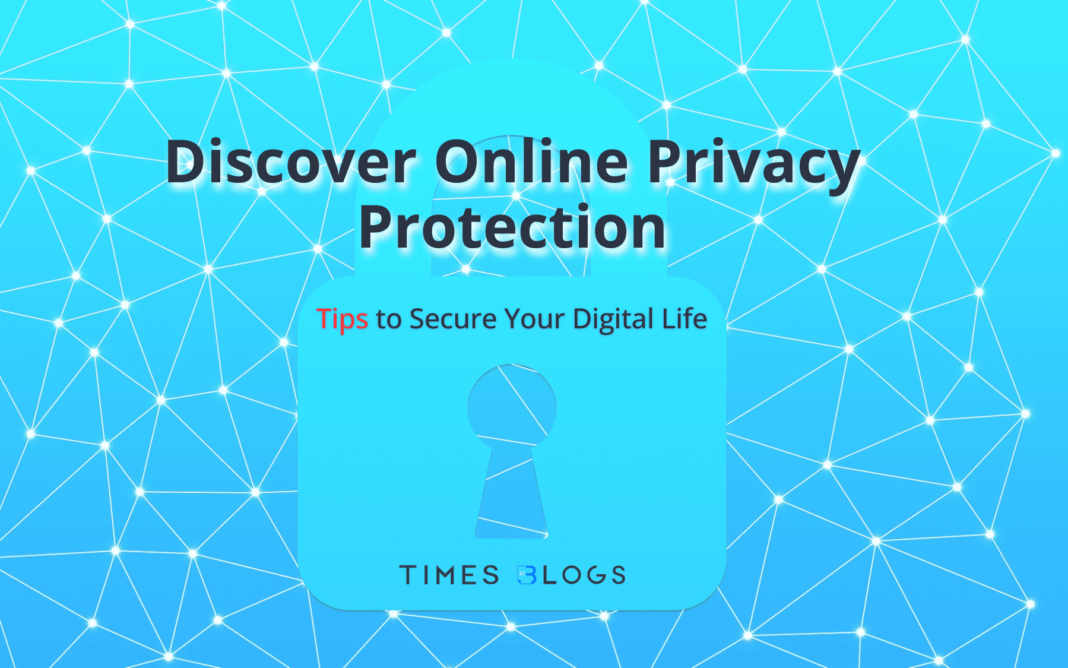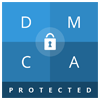Introduction
Do you want to discover online privacy protection and understand how it applies to your daily life? With the increasing threats to our personal and financial data in the digital era, we must be more vigilant and proactive. Discovering online privacy protection isn’t just about keeping hackers at bay; it’s about taking control of your digital life and keeping your information safe and secure.
In this comprehensive guide, we will take a deep dive into various aspects of online privacy protection. From basic safety measures to advanced tools and techniques, we’ll explore everything you need to discover online privacy protection and fortify your digital life.
Join us as we uncover the best practices, tools, and insights to help you navigate the ever-evolving landscape of online threats and opportunities. Let’s embark on this critical journey together, and take the necessary steps towards a more secure, private, and responsible digital existence.
Table of Contents
Discover Online Privacy Protection: Why it Matters
In our fast-paced world of technological advancements, the need to discover online privacy protection has never been more urgent. As we increasingly rely on digital platforms for communication, shopping, banking, and more, our private information is at constant risk. Let’s explore why online privacy protection is so vital.
Definition and Importance of Online Privacy Protection
Online privacy protection refers to the measures and practices taken to safeguard personal information and maintain confidentiality while using the Internet. It’s about controlling who has access to your data and how they can use it.
The importance of discovering online privacy protection cannot be overstated. In an age where data is often referred to as the ‘new oil,’ protecting your personal information is akin to protecting your personal wealth. From securing financial details to keeping personal conversations private, online privacy protection encompasses every aspect of our digital lives.
The Relevance in Today’s Digital Landscape
The digital landscape is vast and continually evolving, making the need to discover online privacy protection more relevant than ever. With the Internet of Things (IoT) connecting various devices, the rise of social media, and the shift to remote working, our online presence has expanded significantly.
These advancements, while offering convenience and connectivity, also present new opportunities for cybercriminals. A lack of online privacy protection can lead to identity theft, financial fraud, and unauthorized access to sensitive information.
Furthermore, businesses and governments are collecting and analyzing personal data on an unprecedented scale. Discovering online privacy protection helps individuals assert control over their information and maintain their autonomy and dignity in a hyper-connected world.
Consequences of Ignoring Privacy Protection
Ignoring online privacy protection is like leaving the doors of your home wide open. The consequences can be severe and far-reaching:
- Identity Theft: Cybercriminals can steal your personal information to impersonate you, leading to legal complications and financial loss.
- Financial Fraud: Without proper privacy protection, sensitive financial details such as bank account numbers and credit card information can be exploited, leading to potentially devastating financial consequences.
- Loss of Personal Freedom: In a world where every online action could be monitored and analyzed, failing to protect privacy leads to a loss of personal freedom, autonomy, and the right to a private life.
- Reputation Damage: Exposure of personal or sensitive information can lead to severe damage to your reputation, impacting personal relationships and professional opportunities.
- Cyberstalking and Harassment: Without adequate privacy measures, personal details can fall into the wrong hands, leading to cyberstalking, harassment, or even physical threats.
- Corporate Espionage: In the business context, failure to secure sensitive company information can result in corporate espionage, loss of competitive advantage, and potentially legal ramifications.
- Emotional Distress: Knowing that your personal information is exposed or has been misused can lead to significant emotional distress and anxiety, affecting overall well-being.
- Loss of Intellectual Property: For creators and innovators, failing to protect online content can lead to unauthorized copying and distribution, undermining intellectual property rights.
- Legal Consequences: Depending on the jurisdiction, failure to protect personal or customer information may have legal consequences, including fines and penalties for non-compliance with privacy laws.
- Decreased Trust in Online Platforms: A lack of privacy protection undermines trust in online services and platforms, possibly hindering technological adoption and innovation.
The need to discover online privacy protection isn’t just about avoiding negative outcomes; it’s about embracing a responsible and empowered digital lifestyle. Whether you’re an individual browsing the web or a business handling customer data, understanding and implementing online privacy protection is a vital part of modern life.
Basic Measures to Discover Online Privacy Protection
Discovering online privacy protection begins with understanding and implementing some fundamental measures. These basic actions lay the foundation for a more secure online presence. Let’s delve into these essential steps.
Efficient Password Management
Passwords are the keys to our digital lives. However, weak or reused passwords can be easily cracked, leaving our online accounts vulnerable. To discover online privacy protection through efficient password management, consider the following:
- Use Strong Passwords: Create passwords that are a combination of letters, numbers, and special characters. The more complex, the better.
- Avoid Using Common Passwords: Words like ‘password’ or ‘123456’ are easily guessable. Avoid them at all costs.
- Use a Password Manager: Password managers store and encrypt your passwords, making it easier to maintain strong, unique passwords for each account.
- Change Passwords Regularly: Regularly update passwords, especially for sensitive accounts like email or banking.
Utilizing Two-Factor Authentication (2FA)
Two-factor authentication adds an extra layer of security, requiring not only a password but also something that only the user possesses, like a phone. Here’s how to leverage 2FA:
- Enable 2FA Wherever Possible: Many services offer 2FA. Make sure to enable it, especially for critical accounts.
- Use Authenticator Apps: Apps like Google Authenticator, Microsoft Authenticator, Okta Verify generate temporary codes, adding an additional security layer.
- Understand the Importance: Realize that 2FA is a simple yet highly effective way to prevent unauthorized access, even if someone knows your password.
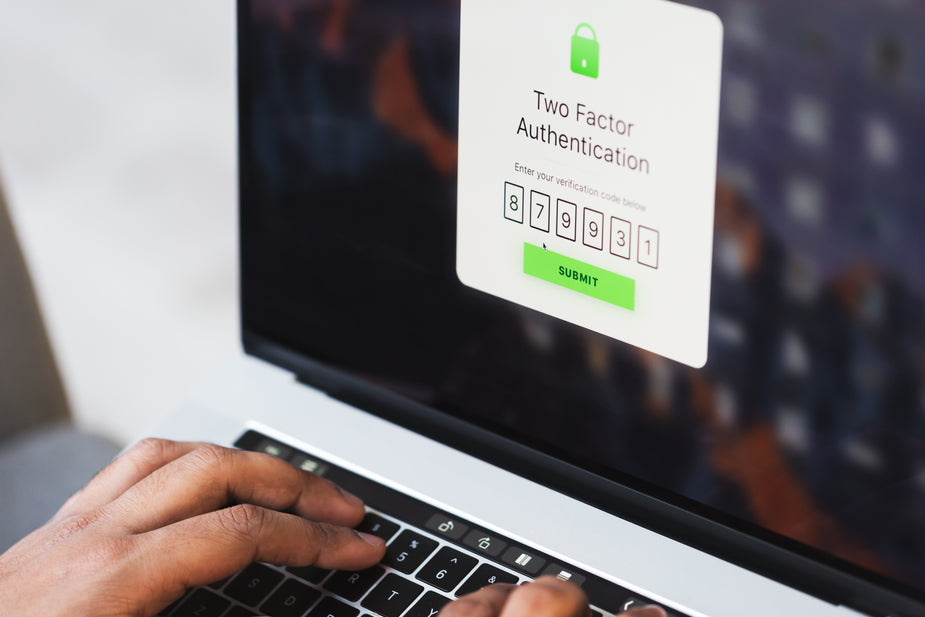
Emphasizing Regular Software Updates
Software updates are not just about adding new features; they often contain crucial security patches. Here’s why regular software updates are vital:
- Install Updates Promptly: Don’t ignore update notifications; they may contain essential security enhancements.
- Automate Where Possible: Set your devices to update automatically to ensure that you’re always running the latest security patches.
- Understand the Risks: Outdated software can have known vulnerabilities that hackers can exploit. Stay updated to stay protected.
The quest to discover online privacy protection starts with embracing these basic measures. Efficient password management, utilizing two-factor authentication, and emphasizing regular software updates are foundational steps that anyone can take. They act as the first line of defense in a world where cyber threats are ever-evolving.
Using VPNs to Discover Online Privacy Protection
Virtual Private Networks (VPNs) have become an essential tool for those looking to discover online privacy protection. A VPN creates a secure connection over the internet, keeping your online activities private and secure. Let’s explore this technology in detail.
Understanding VPNs
As we dive deeper into the world of online privacy, one term frequently pops up: VPN, or Virtual Private Network. This technology is a game-changer in the realm of digital security. But what exactly is a VPN, and why is it so integral to online privacy protection? Let’s break it down.
What is a VPN?
At its core, a VPN is a secure tunnel between your device and the internet. It’s like having a private corridor in the vast digital universe, away from prying eyes and potential threats.
Why Use a VPN?
- Encryption: Encryption is the bedrock of any VPN. When activated, a VPN encrypts the data you send and receive online. This encrypted data is jumbled up into a code, making it nearly impossible for hackers, ISPs, or any unwanted third party to intercept or decipher it. So whether you’re sending an email, making a bank transaction, or just browsing, your activities are shielded.
- Anonymity: We all value our privacy, and in the digital world, our IP address is a significant part of our online identity. Every device connected to the internet has a unique IP address that can reveal information about your location or even your browsing habits. A VPN hides your IP address, replacing it with one from the VPN server. This action masks your real location and makes it extremely challenging for websites, advertisers, and cybercriminals to track or profile your online activities.
- Secure Connection: The internet is filled with potential hazards. Public Wi-Fi networks, especially those without passwords, are hotspots for cybercriminal activities. Without proper protection, anyone on the same network can potentially intercept your data. A VPN creates a secure connection, ensuring that, irrespective of whether you’re using a cafe’s public Wi-Fi, a hotel network, or your home internet, your online activities remain private and secure from potential eavesdroppers.
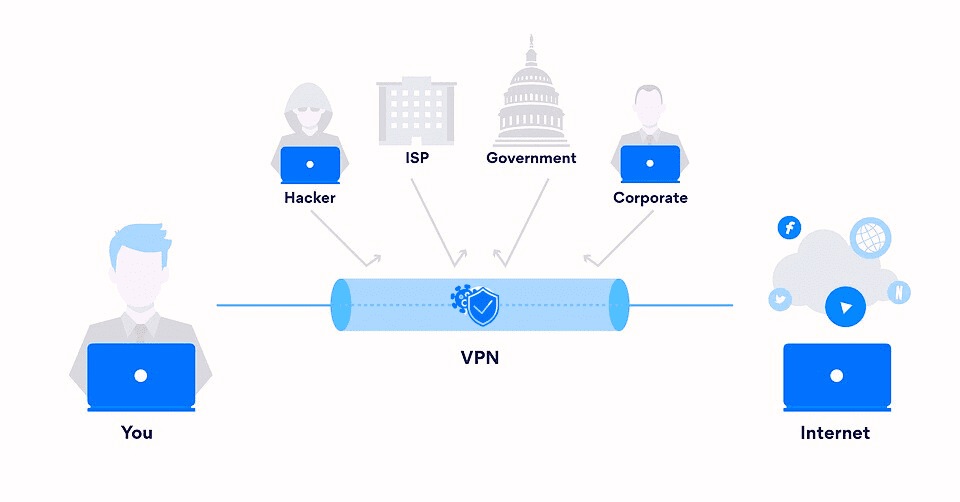
Advantages of Using VPNs to Enhance Privacy
Using a VPN is a significant step to discover online privacy protection. Here are some of its key advantages:
- Protecting Sensitive Information: VPNs safeguard your personal and financial information by encrypting it, making online shopping and banking more secure.
- Bypassing Geographic Restrictions: VPNs allow you to access content restricted to certain regions by connecting to servers in different countries.
- Avoiding Online Tracking: Advertisers and websites often track your online behavior. A VPN helps you maintain privacy by masking your true location and online habits.
- Enhancing Remote Work Security: For remote workers, VPNs provide a secure connection to company networks, ensuring that sensitive corporate data remains protected.
Recommended VPN Services
To truly discover online privacy protection through VPNs, it’s essential to choose a reliable and trustworthy VPN service. Here are some recommendations:
- ExpressVPN: Known for its speed and robust security features, ExpressVPN is a popular choice among privacy enthusiasts.
- NordVPN: With a strong focus on privacy and a wide network of servers, NordVPN is another excellent option.
- CyberGhost: Offering user-friendly apps and strong privacy protections, CyberGhost is ideal for those new to VPNs.
- ProtonVPN: Emphasizing transparency and security, ProtonVPN is a favorite among those looking for a no-logs policy and robust encryption.
VPNs are a powerful tool in the quest to discover online privacy protection. From understanding what a VPN does to recognizing its advantages and selecting a reliable service, embracing this technology is a fundamental step in safeguarding your digital life.
Remember, while VPNs provide substantial privacy enhancements, they should be part of a broader privacy strategy, complementing other measures like strong passwords and regular software updates.
Discover Online Privacy Protection on Social Media
Social media platforms have become an integral part of our daily lives, connecting us with friends, family, and communities worldwide. However, they also pose unique privacy challenges. Let’s explore how to discover online privacy protection on social media.
Adjusting Privacy Settings
One of the first steps to ensure privacy on social media is to understand and adjust your privacy settings. Here’s how:
- Review Default Settings: Many social platforms have default settings that may share more information than you’re comfortable with. Regularly review and adjust them to match your comfort level.
- Control Who Sees Your Content: Utilize features that allow you to control who can see your posts, photos, and profile information.
- Manage Third-Party Access: Be cautious about granting third-party apps access to your social media accounts. Review and revoke unnecessary permissions.
Mindfulness in Social Sharing
What we share on social media can reveal a lot about us. Practicing mindfulness in social sharing is essential to maintain privacy:
- Think Before You Post: Consider the potential impact and audience of your posts. Once shared online, information can be challenging to remove.
- Avoid Sharing Sensitive Information: Refrain from sharing personal details like your home address, phone number, or financial information.
- Be Cautious with Location Sharing: Sharing your location can pose security risks. Be mindful of when and how you share your whereabouts.
Safe Handling of Friend Requests
Social media platforms often encourage connection, but not all friend or follow requests are genuine. Here’s how to handle them safely:
- Verify the Identity: Before accepting a request, verify the person’s identity by checking mutual friends or contacting them directly if needed.
- Be Wary of Unknown Requests: If you receive a request from someone you don’t know, it’s wise to be cautious. Scammers often create fake profiles to gather information.
- Utilize Security Features: Many platforms offer features to limit who can send you friend requests. Use them to maintain control over your connections.
Discovering online privacy protection on social media is a critical aspect of safeguarding our digital lives. By adjusting privacy settings, practicing mindfulness in what we share, and handling friend requests with care, we can enjoy social media without compromising our privacy.
Financial Security: Discover Online Privacy Protection for Your Finances
In today’s digital era, many financial transactions occur online, from shopping to banking. This convenience comes with a responsibility to ensure the security of our financial information. Let’s explore how to discover online privacy protection for our finances, keeping them safe and secure.
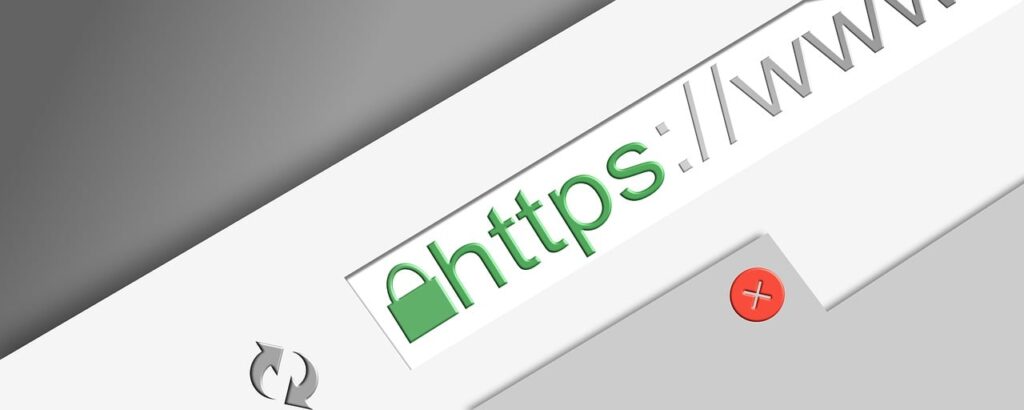
Best Practices for Secure Online Shopping
Online shopping has become a preferred method for many, but it’s essential to follow best practices to keep your financial information secure:
- Shop from Reputable Websites: Ensure that you’re shopping from known and trusted websites with secure connections (look for “https://” in the URL).
- Use Secure Payment Methods: Opt for secure payment methods like credit cards or reputable payment gateways like PayPal.
- Avoid Public Wi-Fi for Transactions: Conducting transactions over unsecured public Wi-Fi can expose your financial information to potential threats.
Safeguarding Credit Card Details
Credit cards are widely used online, but mishandling them can lead to fraud. Here’s how to safeguard your credit card details:
- Never Share via Email or Text: Credit card details should never be sent via unsecured means like email or text messages.
- Use a Virtual Credit Card: Some banks offer virtual credit cards that are tied to your account but use a different number, adding an extra layer of security.
- Store with Caution: If you choose to save credit card details on a website, make sure it’s a trusted site with robust security measures.
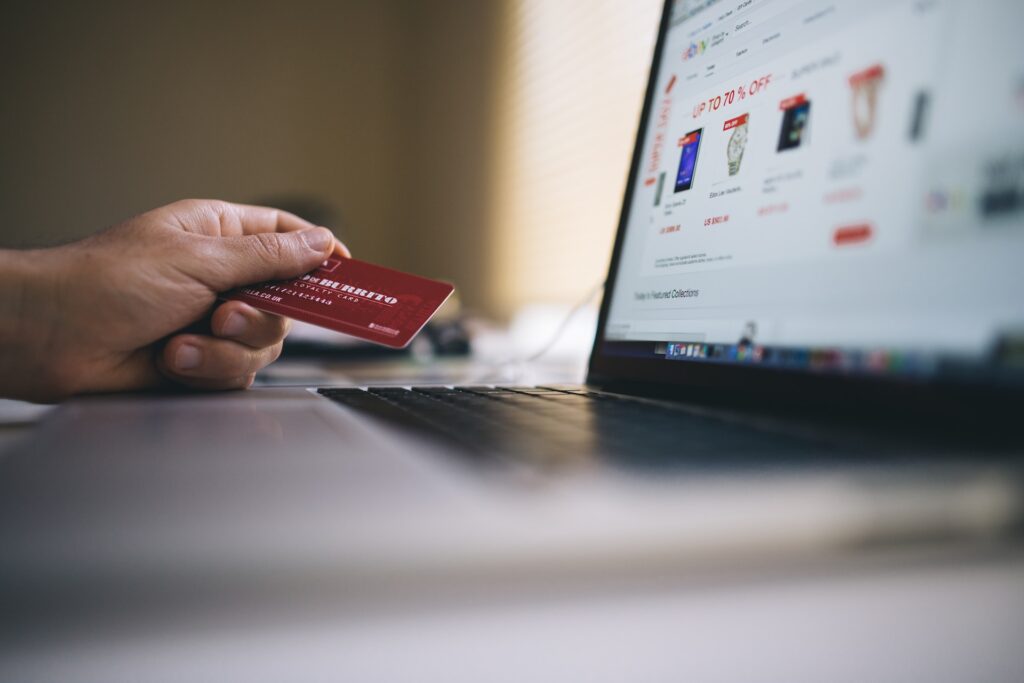
Monitoring for Unusual Activities
Keeping an eye on your financial statements and accounts is vital to detect any unusual or unauthorized activities:
- Regularly Review Statements: Check your bank and credit card statements regularly for any unfamiliar transactions.
- Set Up Alerts: Many financial institutions offer alerts for transactions over a certain amount or unusual activities. Utilize these to stay informed.
- Report Suspicious Activities Promptly: If you notice something amiss, report it to your financial institution as quickly as possible to minimize potential damage.
Discovering online privacy protection for your finances is a key aspect of modern life, ensuring that the conveniences of online shopping and banking do not become a source of stress and risk.
By adhering to best practices for secure online shopping, safeguarding credit card details, and monitoring for unusual activities, you’re taking proactive steps to protect your financial life.
Email Security: Discover Online Privacy Protection in Your Inbox
Email remains one of the most popular and vital communication tools in both personal and professional settings. As such, securing your inbox against various threats is an essential aspect of online privacy protection. Here’s how to keep your emails safe and private.
Identifying and Avoiding Phishing Emails
Phishing emails attempt to trick recipients into divulging personal information. They often look legitimate but contain malicious links or attachments. Here’s how to identify and avoid them:
- Inspect Links Carefully: Hover over links to see the actual URL. If it looks suspicious or doesn’t match the purported sender, avoid clicking.
- Check for Grammar and Spelling Errors: Phishing emails often contain mistakes. Look for inconsistencies or errors as clues.
- Use Email Security Tools: Many email providers offer tools to flag potential phishing emails. Ensure they are enabled.
- Report Suspected Phishing: If you encounter a phishing email, report it to your email provider to help them improve their security measures.
Selecting Secure Email Services
Choosing the right email provider is a significant step in maintaining email security. Consider the following:
- Look for End-to-End Encryption: Select providers that offer end-to-end encryption to ensure that only you and the intended recipient can read the emails.
- Review Privacy Policies: Understand the provider’s privacy policy, especially concerning data handling and third-party access.
- Consider Specialized Providers: For highly sensitive communications, consider providers specifically focused on security and privacy, like ProtonMail.
Implementing Email Encryption
Email encryption adds another layer of security, making it nearly impossible for unauthorized parties to read your emails. Here’s how to implement it:
- Use Built-in Encryption Features: Many popular email clients offer encryption options. Learn how to enable them in your email settings.
- Consider Third-Party Tools: There are specialized tools like GPG that can be used to encrypt emails. Research and choose one that fits your needs.
- Understand the Importance: Recognize that email encryption isn’t just for the tech-savvy; it’s a vital tool for anyone concerned about privacy and security.
To discover online privacy protection in your inbox, understanding the risks and implementing measures to mitigate them is crucial. From identifying phishing attempts to selecting secure email services and implementing encryption, these steps empower you to take control of your email security.
Emails often contain sensitive information, whether personal or professional. By taking these precautions, you transform your inbox from a potential vulnerability into a fortress of privacy.
Legal and Ethical Aspects: Discover Online Privacy Protection Responsibilities
Online privacy protection is not just about personal practices and technological solutions; it also entails legal and ethical obligations. Both individuals and organizations must understand and comply with various laws, standards, and moral principles that govern online interactions and data handling. Let’s delve into these responsibilities.
Understanding Legal Obligations
Different jurisdictions have established laws and regulations to safeguard online privacy. It’s essential to understand and comply with these legal obligations:
- Know Your Jurisdiction’s Laws: Familiarize yourself with the privacy laws that apply to your region, such as GDPR in Europe or CCPA in California.
- Comply with Business Regulations: If you’re a business owner, ensure that your practices align with legal requirements regarding customer data protection.
- Seek Professional Guidance if Needed: Legal matters can be complex. Don’t hesitate to consult with legal professionals to ensure full compliance.
Respecting Privacy Rights
Respecting others’ privacy rights is a fundamental ethical principle in online interactions:
- Obtain Consent: Whether you’re collecting data for marketing or sharing photos of others online, always obtain consent where required.
- Handle Data with Care: If you have access to others’ personal information, handle it responsibly, and only use it for its intended purpose.
- Promote Privacy Awareness: Educate yourself and others about privacy rights and responsibilities, creating a culture of respect and understanding.
Reporting and Combatting Cybercrimes
The fight against cybercrimes like fraud, harassment, or identity theft is a shared responsibility. Here’s how you can contribute:
- Report Suspected Crimes: If you encounter or fall victim to cybercrime, report it to the appropriate authorities to aid in investigation and prevention.
- Support Victims: Offer support and guidance to those affected by cybercrimes, directing them to appropriate resources.
- Engage in Responsible Online Behavior: Be a positive online citizen by practicing ethical online behavior and encouraging others to do the same.
To fully discover online privacy protection, recognizing and fulfilling legal and ethical responsibilities is paramount. From understanding legal obligations to respecting privacy rights and actively combatting cybercrimes, these responsibilities shape how we interact with the digital world.
Conclusion: Embrace a Secure Digital Lifestyle
The quest to discover online privacy protection is a timely and essential pursuit in our increasingly interconnected world. From safeguarding our social media presence to protecting our financial information, ensuring email security, and honoring legal and ethical responsibilities, the journey to online privacy protection is multifaceted and continuous. Let’s recap some key insights:
- Password Management and Two-Factor Authentication: These basic measures lay the foundation for secure online interactions.
- VPNs and Regular Software Updates: These technological solutions add layers of protection, masking your online activities from prying eyes.
- Mindful Social Media Practices: Your behavior on social platforms can either enhance or endanger your privacy. Choose wisely.
- Financial Security Measures: From shopping to banking, know how to protect your financial transactions online.
- Email Security Tools and Practices: Equip your inbox with robust defenses against phishing and other email-related threats.
- Legal and Ethical Responsibilities: Online privacy protection isn’t just a personal affair; it involves societal norms and regulations.
But the quest to discover online privacy protection doesn’t end here. It’s an ongoing commitment that requires continuous awareness, learning, and action. The digital landscape is ever-evolving, and so must our strategies to secure it.
Take the insights and tips provided in this guide to the heart and apply them diligently. Encourage others in your community to do the same. Make privacy protection a regular part of your online activities, and don’t hesitate to seek professional guidance or use specialized tools if needed.
By embracing a secure digital lifestyle, you’re not merely protecting your personal information; you’re contributing to a safer, more responsible digital world for everyone. The power to create a more private and secure online experience is in your hands.
Let’s take up this challenge together. Discover online privacy protection, embrace it, live it, and champion it, forging a path that others can follow.
Here’s to a more private, secure, and responsible digital life for all of us.


